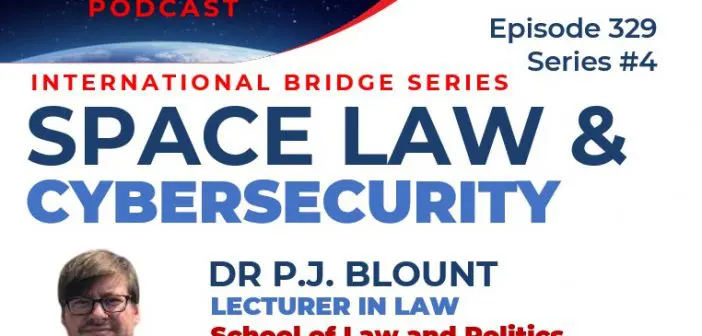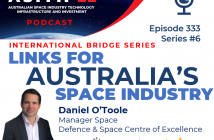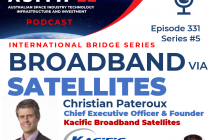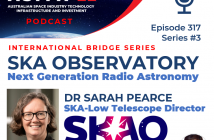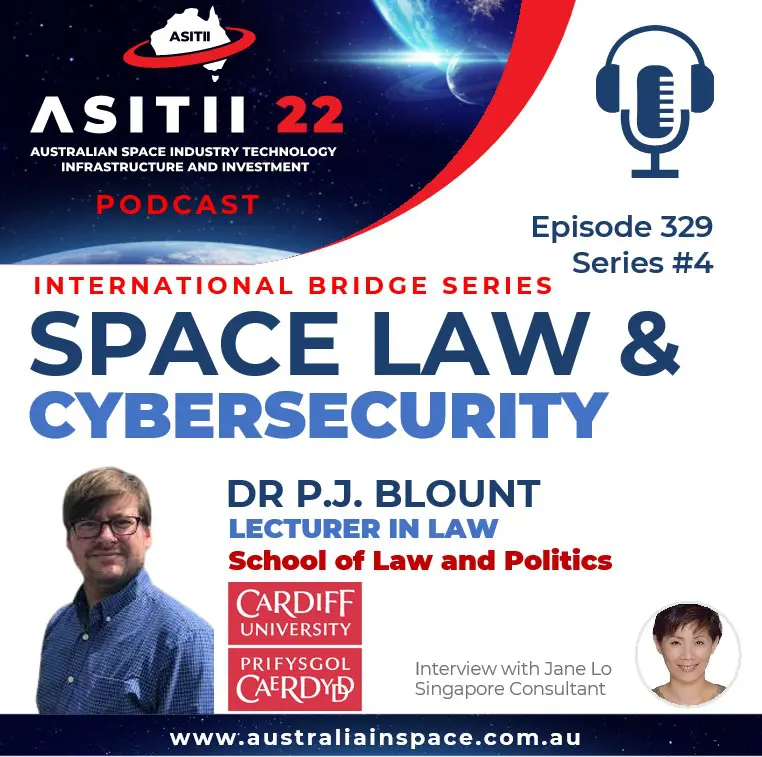
Jane Lo, Singapore Correspondent speaks with Dr. P.J. Blount, Lecturer in Law in the School of Law and Politics at Cardiff University.
Dr. P.J. Blount (Ph.D., M.S., Global Affairs, Rutgers University; LL.M., King’s College London; J.D., University of Mississippi; B.A./A.B.J., University of Georgia) is a Lecturer in Law in the School of Law and Politics at Cardiff University. He has served as an adjunct professor for the LL.M. in the Air and Space Law at the University of Mississippi School of Law. Previously, he was a Postdoctoral Researcher at the University of Luxembourg, an adjunct professor at Montclair State University, and a Visiting Scholar at the Beijing Institute of Technology School of Law. He also completed an industrial fellowship sponsored by the Luxembourg National Research Fund wherein he split his time between SES and the University of Luxembourg research cybersecurity issues relevant to the space industry.
Blount’s primary research areas are international space law with a focus on space security and cyberspace law and governance. He has published and presented widely on the topic of space law and has given expert testimony on Space Traffic Management before the U.S. House of Representatives’ Subcommittee on Space. His book, Reprogramming the World: Cyberspace and the Geography of Global Order, was published open access with e-International Relations Press in 2019.
He is an editor of the Proceedings of the International Institute of Space Law and was formerly the Editor-in-Chief of the Journal of Space Law. He currently serves as the Executive Secretary of the International Institute of Space Law and is a licensed attorney with the State Bar of Georgia (USA).
In this podcast, Dr Blount introduces the historical and political context of the Outer Space Treaty which was negotiated in 1967. Despite the technological advances since then, Dr Blount argues that the treaty, in his view, is technologically neutral, where the intent is for it to “apply to everything” and “embrace all sorts of technologies”.
Nevertheless, technological developments force us to rethink our understanding of security. While cybersecurity adds a layer of complexity, he notes that “cybersecurity laws and regulations are not usually the answer to our problems in cybersecurity”.
However, he stresses that, cybersecurity being a risk management process means there are legal implications. For example, for a university Cube Sat, he explains how cybersecurity may play a part in the licensing and authorising process – that is, the extent of cybersecurity and risk management plans could depend on its payload and orbital dynamics.
On whether space sector should be designated as a critical infrastructure, Dr Blount advocates for more definitions, noting the potential for burdening such satellites as the educational ones with unnecessary regulations.
Where laws provide few details in how to secure assets for space sector operators, Dr Blount suggests that standards such as those developed by NIST for Commercial Satellite Operations serve as actionable guidance.
Recorded 27th June 2022, 10am London / 5pm Singapore

